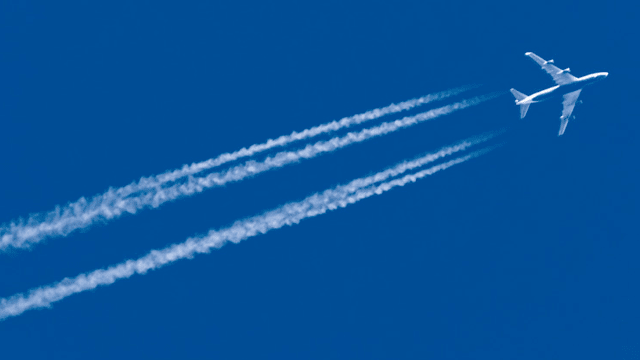Boeing, NASA, and United Airlines to Collaborate on Assessing the Benefits of Sustainable Aviation Fuel on Contrails
As part of a joint effort to enhance sustainability in aviation, Boeing is partnering with NASA and United Airlines for in-flight tests to measure the impact of Sustainable Aviation Fuel (SAF) on contrails and non-carbon emissions, in addition to reducing fuel consumption.
Boeing's second ecoDemonstrator Explorer, a 737-10 destined for United Airlines, will fly with Sustainable Aviation Fuel (SAF) and conventional kerosene in separate tanks, and with alternative fuels during the tests. NASA's airborne science laboratory, the DC-8, will fly behind the commercial aircraft and measure emissions produced by each type of fuel and the trailing ice particles. NASA satellites will capture images of contrail formation as part of the tests.
Researchers aim to understand how advanced fuels, engine combustion chamber designs, and other technologies can reduce atmospheric warming. For instance, tests will assess how SAF affects contrail characteristics, including persistent contrails produced when aircraft fly through cold and humid air. While their overall impact is not yet fully understood, some research suggests that certain contrails may trap heat in the atmosphere.
World Energy is supplying SAF for the tests from its facilities in Paramount, California. Additional support comes from the U.S. Federal Aviation Administration (FAA), providing funding through the ASCENT Center of Excellence, GE Aerospace offering technical expertise and project funding, and the German Aerospace Center (Deutsches Zentrum für Luft- und Raumfahrt or DLR) providing experts and instruments.
This project marks the latest phase of a multi-year partnership between Boeing and NASA to assess how SAF can reduce emissions and bring other environmental benefits. Compared to conventional jet fuel, SAF - made from a range of sustainably sourced feedstocks - can reduce emissions by up to 85% over the fuel's lifecycle, offering the greatest potential for CO2 emission reduction in aviation over the next 30 years. Additionally, SAF produces less soot, which can contribute to improved air quality near airports.
This year, the Boeing ecoDemonstrator program has expanded to include Explorer aircraft focused on short-term testing projects. In 2021, Boeing and NASA conducted ground tests of SAF emissions on an Alaska Airlines 737-9, followed by flight tests on ecoDemonstrator 777-200ER and 787-10 test aircraft in 2022. Boeing is committed to delivering commercial aircraft fully compatible with SAF by 2030. The 737-10 represents the largest member of Boeing's 737 MAX single-aisle family, which reduces fuel consumption and emissions by 20% compared to its predecessors, according to Boeing statements.

Comments0
Please log in to see or add a comment
Suggested Articles

